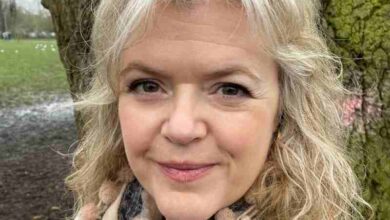Natalie Abrahami: A Visionary Force in Contemporary Theatre and Opera

In the realm of British theatre and opera, few names carry the quiet authority and imaginative reach of Natalie Abrahami. Known for her bold interpretations of classic texts and her ability to nurture new voices, she has carved a distinctive place within the creative industries. Her career spans theatre, opera, and film, always underscored by a strong commitment to storytelling that is both visually inventive and emotionally resonant.
Early Life and Education
Natalie Abrahami was born and raised in London, into a household enriched by cultural influences from her Israeli heritage. Her parents’ background meant she grew up bilingual, fluent in Hebrew as well as English, an experience that broadened her awareness of language and expression.
She studied English Literature at Christ’s College, Cambridge, where she first began to channel her interest in performance into a professional direction. During her time at university, she was heavily involved in student theatre, taking early steps into directing. Her grounding in literature provided the intellectual foundation for a career that would later balance textual fidelity with visual imagination.
Early Career and Breakthrough
Abrahami’s professional journey began at the Royal Court Theatre, an incubator of new writing in Britain. Here, she encountered the pulse of modern drama, learning to work with living playwrights and innovative scripts. Her talent soon brought recognition: in 2005 she won the prestigious JMK Award, which supports emerging directors. This award was an early sign that her ability to command the stage and shape stories was exceptional.
A major turning point came when she was appointed joint Artistic Director of the Gate Theatre, London, alongside Carrie Cracknell, from 2007 to 2012. The Gate is known for its compact space and daring programming, and under their leadership it became a hub for fresh approaches. Productions such as “The Kreutzer Sonata” and “Vinegar Tom” demonstrated Abrahami’s skill at blending intensity with experimentation.
Associate Director at the Young Vic
In 2013, Natalie Abrahami was appointed Genesis Fellow and Associate Director at the Young Vic, one of London’s most important theatres. The Young Vic has a reputation for innovative productions, and Abrahami flourished in this environment.
One of her standout projects here was a striking revival of Samuel Beckett’s Happy Days, with Juliet Stevenson in the lead role. This production was praised for its balance of comedy and tragedy, as well as for Abrahami’s ability to draw out emotional nuance from Beckett’s famously difficult text. It was so successful that the production was revived multiple times.
Her Young Vic tenure also included new plays and experimental projects, reinforcing her status as a director who thrives on variety.
Forays into Opera
Natalie Abrahami has also brought her distinctive directorial vision to opera. She made her Royal Opera House debut in 2013/14 with “How the Whale Became”, an enchanting new opera inspired by Ted Hughes’s stories. The work was noted for its accessibility and theatrical flair, marking Abrahami as a director able to translate her stage instincts into the operatic medium.
In 2022/23, she co-directed a new production of Dvořák’s Rusalka with choreographer Ann Yee, also at the Royal Opera House. This staging was celebrated for its imaginative design and for reinterpreting a classic opera in ways that spoke to modern audiences. Abrahami’s ability to navigate between drama and opera demonstrates her versatility and her openness to multiple artistic forms.
Distinctive Directorial Style
What sets Natalie Abrahami apart is her capacity to marry intellectual rigour with theatrical spectacle. She often takes familiar plays and presents them in ways that feel urgent and surprising.
Her productions are marked by:
- Visual boldness: She uses inventive stagecraft, often employing striking images or unusual staging to reframe a story.
- Psychological depth: Characters in her productions are never superficial; she emphasises inner struggles and emotional truth.
- Respect for text: While inventive, her work never loses sight of the script, whether classical or contemporary.
- Collaboration: Abrahami is known for her collaborative spirit, working closely with designers, choreographers, and performers.
These qualities make her a favourite with both actors and audiences, who find in her work a mix of accessibility and depth.
Selected Works
- Happy Days by Samuel Beckett (Young Vic, 2014 & revivals): Praised for Juliet Stevenson’s performance and Abrahami’s clear yet imaginative direction.
- Machinal by Sophie Treadwell (2018): A modernist classic about the oppression of women, staged with intensity and relevance.
- How the Whale Became (Royal Opera House, 2013/14): A family opera that charmed critics and audiences alike.
- Rusalka (Royal Opera House, 2022/23): A visually ambitious and emotionally rich reimagining of Dvořák’s fairy-tale opera.
- The Kreutzer Sonata (Gate Theatre): Adapted from Tolstoy, this production displayed her ability to bring literary classics to visceral life.
Recognition and Influence
Winning the JMK Award in 2005 gave Natalie Abrahami a platform, but it is her consistent output since then that has consolidated her reputation. She has been recognised by critics for her ability to bring fresh life to canonical works and for her support of new writing.
Her leadership at the Gate Theatre helped foster a generation of actors and playwrights. At the Young Vic, her influence extended into one of the most important creative spaces in Britain. And through her ventures into opera, she has widened her artistic horizons while maintaining a distinctive voice.
Challenges and Opportunities
Directing in Britain today is no simple task. Theatres face financial pressures, and directors must balance artistic integrity with the need to attract audiences. Natalie Abrahami has managed to do both: her productions are respected critically while also drawing strong public interest.
She also navigates the challenges of being a woman in a field that has historically been male-dominated. Her success helps pave the way for other women to step into leadership roles across the performing arts.
Legacy and Future Prospects
Natalie Abrahami’s career is still unfolding, but already she has left a significant mark. Her ability to reinterpret classics while fostering new voices ensures her continued relevance. With her blend of literary insight, theatrical daring, and collaborative openness, she is well placed to take on ever more ambitious projects.
Her move between theatre and opera suggests a future in which she will continue to cross boundaries, bringing her distinctive style to diverse audiences. Whether staging Beckett in London or Dvořák in Covent Garden, her work reflects a singular vision: art that speaks deeply and lingers long after the curtain falls.
Conclusion
Natalie Abrahami is more than a successful director; she is a cultural force shaping the way stories are told on stage and in opera houses. Her career reflects dedication, creativity, and resilience, qualities that inspire both artists and audiences. In a landscape where the arts continually evolve, Abrahami’s presence ensures that bold, imaginative storytelling remains at the heart of contemporary performance.
With a career spanning two decades and an influence that continues to grow, Natalie Abrahami stands as one of the defining voices of modern British theatre and opera. Her journey illustrates the power of vision, the importance of collaboration, and the enduring relevance of live performance in our rapidly changing world.



